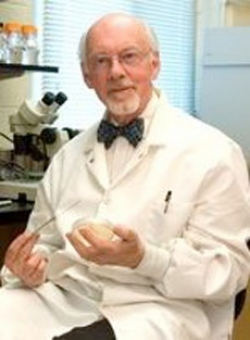Sir Hans Kornberg

Courtsey University of Sheffield
- Born
- 14 January 1928
Sir Hans Kornberg is an esteemed biochemist with a broad academic history spanning across top universities in the UK and the USA. His research area asks questions about how micro-organisms use and transport small molecules called carbohydrates.
Kornberg was originally born in Germany in 1928 before emigrating to Yorkshire, England to escape the Nazi regime. He attended a local grammar school and, upon finishing, he became a junior laboratory technician at the University of Sheffield under Sir Hans Krebs who encouraged him to apply for a scholarship. Kornberg applied, was accepted and went on to graduate with a BSc in chemistry and then went on to a PhD in biochemistry.
From there, Kornberg’s career took him across the Atlantic for two years before returning to the UK for a post at Oxford University where he collaborated with his old mentor Hans Krebs to complete a major publication on biological thermodynamics.
It was in Oxford that Kornberg met his first wife, Monica King, a radiographer, with whom he had four children.
Kornberg's current work focuses on questions about micro-organisms, such as how they make preferences between different carbohydrates, why the same substance can affect different organisms differently, and how does mutating certain genes change the particular behaviours in E. coli.
Sir Kornberg has advised on science policy and served on various scientific committees. He has been president of the British Association for the Advancement of Science (now the British Science Association), the first president of the UK Biochemical Society and also the International Union of Biochemistry and Molecular Biology.
In 1960 Kornberg was appointed to the first chair in biochemistry at the University of Leicester which he remained for 15 years until he was elected to the Sir William Dunn chair of biochemistry at the University of Cambridge. Here he received a knighthood for “services to science”. He stayed in Cambridge until 1995 when he left to take up a Professor position at Boston University, USA, where he teaches biochemistry today.



